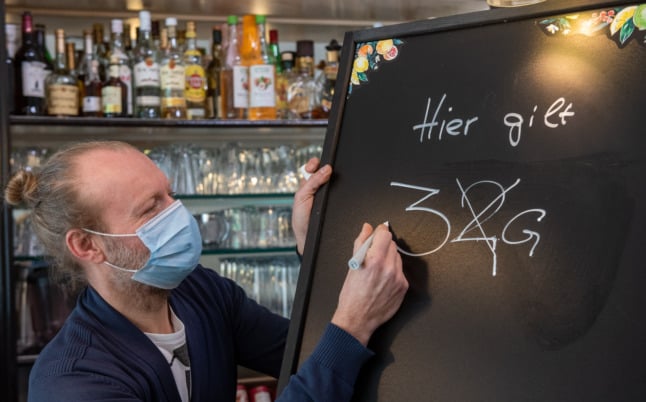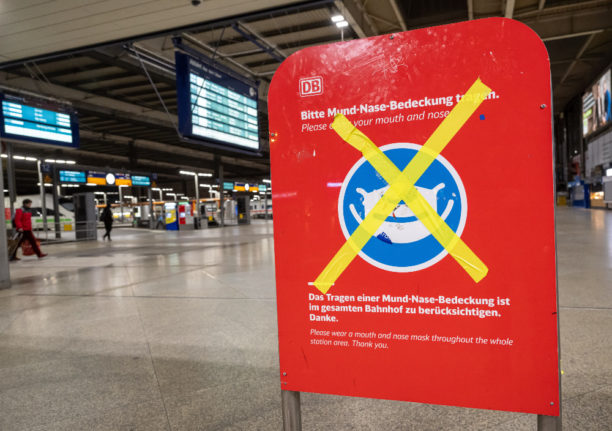Germany entered the second step of its Covid relaxation plan on Friday, reopening restaurants, bars, cafes and hotels to unvaccinated people.
They have been barred from entering many public places since December in response to tightened restrictions to clamp down on the Omicron variant of Covid-19. The 2G rule was brought in which meant only vaccinated and recovered people were allowed to enter these venues.
From Friday March 4th, unvaccinated people can visit a restaurant or similar venue with a negative Covid test under the 3G rule.
Nightclubs and discos are also allowed to reopen their doors with the 2G-plus rule as of Friday.
That means vaccinated and recovered people are allowed to go dancing if they can present a negative test result or are boosted.
In Berlin, however, even people who’ve had their booster shot have to show a negative Covid test.
READ ALSO: The German Covid rules changing this week
Capacity rules are also being eased on March 4th. Indoors up to 60 percent of the maximum capacity – with a maximum of 6,000 people – is allowed.
Outdoors a capacity of up to 75 percent (with a maximum of 25,000 people) will be permitted. This will apply to the likes of football matches and concerts.
On Friday Germany reported 217,593 Covid cases within the latest 24 hour period, and 291 deaths. The 7-day incidence stood at 1,196.4 infections per 100,000 people.
The new rules will apply for just over two weeks. On March 19th, the Infection Protection Act, which is currently the basis for the Covid restrictions, expires.
On March 20th most Covid rules will fall away and only some basic protection measures will remain. There’s no detail on what exactly they’ll be yet, but it is expected to include mandatory face masks in indoor public areas.
The Free Democrats – partner in the governing coalition alongside the Social Democrats and Greens – are insisting that as few Covid rules as possible remain in force after March 20th.
Party leader and Finance Minister Christian Lindner said: “Our constitutional order applies and that means that the state only intervenes where it is really necessary, where there is really a danger. And we will discuss this together in detail: what is still necessary, what is not necessary.”
If the infection situation worsens significantly after March 20th, a fallback option will apply. Accordingly, the federal government will initiate a new law that provides for further Covid protection measures.



 Please whitelist us to continue reading.
Please whitelist us to continue reading.
Member comments